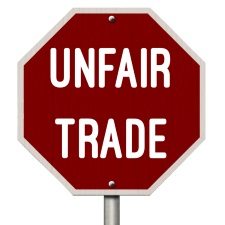Different Kinds of Buying by Consumers
Table of Contents
- 1 Different Kinds of Consumer Buying
- 1.1 1. Hand-to-mouth buying
- 1.2 2. Speculative buying
- 1.3 3. Buying by inspection
- 1.4 4. Buying by samples
- 1.5 5. Buying by description
- 1.6 6. Contract buying
- 1.7 7. Scheduled buying
- 1.8 8. Period buying
- 1.9 9. Buying by requirement / need
- 1.10 10. Open market buying
- 1.11 11. Reciprocal buying
- 1.12 12. Concentrated buying
- 1.13 13. Scattered buying
Different Kinds of Consumer Buying
A brief idea of the various kinds of buying by consumers, identified by marketing experts, is given below:

1. Hand-to-mouth buying
It refers to buying in small quantities. Most families buy the vegetables needed for daily use on this basis.
2. Speculative buying
Businessmen, who anticipate a rise in the price of certain goods, accumulate stock of such goods in the hope of selling at a higher price. Such a kind of buying, known as speculative or forward buying is quite common in a share market. ‘Shares’ are goods as per the ‘Sale of Goods Act’.
3. Buying by inspection
As buyers, we have the right to examine the goods we buy. But in some cases, the buyer may not be in a position to exercise such a right either because the seller is in a different place (when goods are imported) or the seller may not permit such an examination (when certain second hand goods are auctioned).
4. Buying by samples
It is not unusual for a buyer to ask for samples of certain items before buying. For example, when we buy sweets or savories we do ask for samples. In some cases, the conformity of the sample to the bulk needs to be checked.
5. Buying by description
Manufacturers of furniture items usually make available catalogues showing different models to enable their customers to choose. They also make furniture as per the description and specification given by their clients.
6. Contract buying
Manufacturers who require regular supply of raw materials often enter into long-term contracts with the suppliers. The suppliers provide certain quantity of such materials at a certain price for a fairly longer period of time.
7. Scheduled buying
This kind of buying is done by two business units where the output of one is the input of another. For example, there may be an agreement between a manufacturer of paper and a manufacturer of notebooks by which the former will supply the latter certain quantity of paper at regular intervals. By this practice they help each other.
8. Period buying
This refers to the practice of buying at regular intervals. For example, most of us buy the provisions needed for our kitchen in the beginning of each month. We usually buy from a particular provision store and the order is placed either in person or over telephone. ‘Subhiksha’, a popular departmental store has also introduced ‘Internet Shopping’.
9. Buying by requirement / need
Certain goods are demanded mainly during a particular season. These are called seasonal goods. Examples: In India, Crackers are demanded during Diwali. The demand for sugarcane is more during Pongal. Books and notebooks are in demand in the beginning of the academic year. The demand for umbrellas and raincoats is more during rainy season.
10. Open market buying
It refers to the practice of buying certain goods not out of necessity but mainly because their prices have been slashed. This is done in the case of jewellery.
11. Reciprocal buying
When two business units agree mutually to buy from each other it is known as reciprocal buying. For example, there may be an understanding between a paper mill and a stationery shop by which the former will supply the paper required by the latter and the latter will provide the stationery items needed by the former.
12. Concentrated buying
It refers to a situation where goods need to be purchased from a particular source only. It happens because the source of supply is confined to a particular region. For example, most of the publishers of college books are Delhi based in India.
13. Scattered buying
It is just the opposite of concentrated buying. In this case, buying is done from any source that is profitable and convenient.

